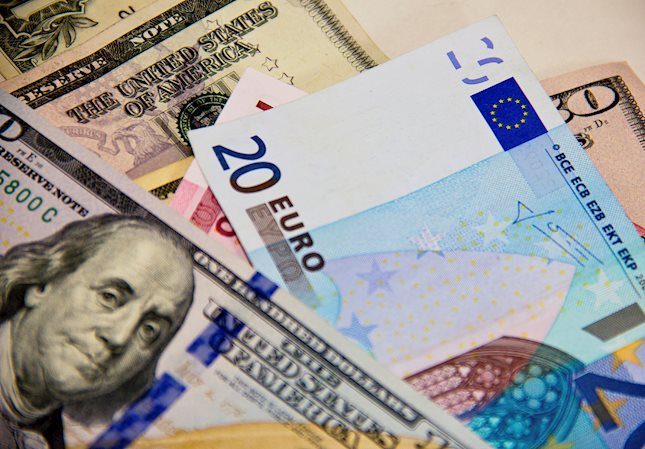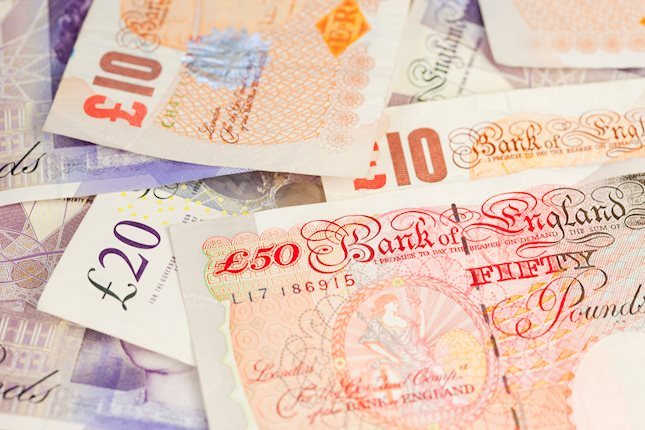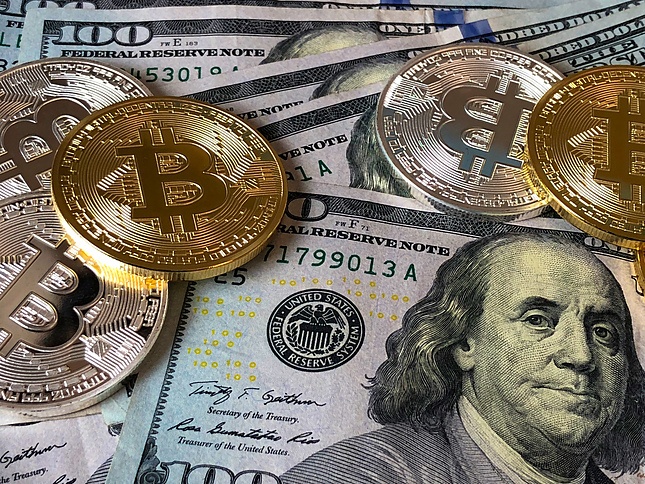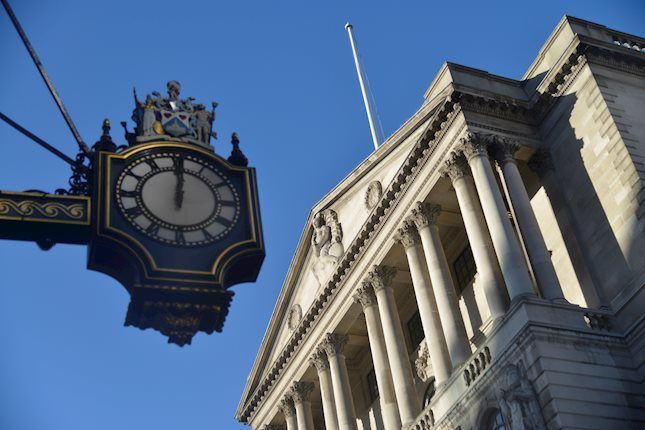- Pound Sterling finds an intermediate support, but the downside seems favored amid global uncertainty.
- BoE Dhingra warned that further tightening could hurt the UK economy.
- Investors shift focus to the July Employment data, which will be released on Tuesday.
The Pound Sterling (GBP) discovered intermediate support as investors started digesting the potential risks of global economic turmoil due to restrictive monetary policy by Western central bankers. The GBP/USD pair finds an intermediate cushion, but the broader bias remains bearish as investors expect that policy divergence between the Federal Reserve (Fed) and the Bank of England (BoE) may not vanish this month.
BoE policymaker Swati Dhingra warned that current monetary policy is “sufficiently restrictive” and that more hikes could hurt the UK economy. The narrative of keeping interest rates steady in coming months got support from BoE Governor Andrew Bailey, who conveyed that the interest rate peak is near. Higher wage growth due to labor shortages has been a driving factor in stubborn UK inflation. Therefore, investors would shift focus to the Employment report for July, which will be published on Tuesday.
Daily Digest Market Movers: Pound Sterling remains under pressure due to subdued US Dollar
- Pound Sterling rebounds after a three-day losing spell near 1.2440 as investors digest potential risks of global economic turmoil.
- The asset attempts to climb above the psychological resistance of 1.2500 as the appeal for risk-sensitive currencies improves.
- Recovery in the Pound Sterling is not backed by supportive fundamentals. Therefore, the market mood could dampen again as repercussions of the tight interest rate policy will keep threatening the economic outlook.
- Potential risks of economic turmoil in the UK region increase as the service sector contracts for the first time in the past seven months, while the Manufacturing PMI has remained below the 50.0 threshold for a lengthy period.
- Bank of England policymaker Swati Dhingra said this week that further policy tightening would hurt the economy.
- While UK economic prospects start faltering due to restrictive monetary policy, a compelling reason to halt rate hikes, solid wage growth is still a concern for the central bank.
- Wage growth momentum is swift due to labor shortages, leaving more money in the palms of households for disposal. This could back higher consumer spending momentum and eventually would result in stubborn inflation.
- BoE Governor Andrew Bailey also commented this week that the central bank is near to pausing its tightening cycle, but interest rates will remain higher for a longer period.
- A monthly survey conducted by the Bank of England (BoE) Decision Maker Panel (DMP) showed that UK businesses reported year-ahead Consumer Price Index (CPI) inflation sharply lower at 4.8% in August vs. 5.4% projected in July. UK businesses see August year-ahead wage growth at 5.0% vs. July 5.0%.
- Meanwhile, the Recruitment & Employment Confederation (REC) reported on Thursday that permanent staff placement dropped to 38.9, the lowest since June 2020.
- For an in-depth understanding of current labor market conditions, investors will focus on the July Employment report, which will be published next Tuesday, September 12, at 06:00 GMT.
- The recovery attempt by the GBP/USD pair is also backed by exhaustion in the US Dollar’s upside momentum. The US Dollar Index (DXY) finds an intermediate resistance near 105.00, while the upside bias is still solid.
- The US Dollar faces some pressure as Federal Reserve (Fed) policymakers delivered a neutral commentary about September's monetary policy.
- Dallas Fed Bank President Lorie Logan said on Thursday that while it "could be appropriate" to skip an interest rate increase at September’s meeting but warned that more tightening may be needed to bring down inflation to 2% in a timely way.
- Chicago Fed Bank President Austan Goolsbee said the central bank is aiming to push the economy on a “global path”. This would mean a situation where inflation recedes without pushing the economy into a recession.
Technical Analysis: Pound Sterling remains sideways around 1.2500
Pound Sterling attempts a recovery on Friday after a three-day negative closing spell as investors start digesting fears of global uncertainty. The broader downside of the Cable remains weak as it is struggling to remain above the 200-day Exponential Moving Average (EMA), which is around 1.2500. The 20 and 50-day EMAs have started declining, indicating strength in Cable bears’s determination. Momentum oscillators indicate that the bearish impulse has firmed significantly.
Pound Sterling FAQs
What is the Pound Sterling?
The Pound Sterling (GBP) is the oldest currency in the world (886 AD) and the official currency of the United Kingdom. It is the fourth most traded unit for foreign exchange (FX) in the world, accounting for 12% of all transactions, averaging $630 billion a day, according to 2022 data.
Its key trading pairs are GBP/USD, aka ‘Cable’, which accounts for 11% of FX, GBP/JPY, or the ‘Dragon’ as it is known by traders (3%), and EUR/GBP (2%). The Pound Sterling is issued by the Bank of England (BoE).
How do the decisions of the Bank of England impact on the Pound Sterling?
The single most important factor influencing the value of the Pound Sterling is monetary policy decided by the Bank of England. The BoE bases its decisions on whether it has achieved its primary goal of “price stability” – a steady inflation rate of around 2%. Its primary tool for achieving this is the adjustment of interest rates.
When inflation is too high, the BoE will try to rein it in by raising interest rates, making it more expensive for people and businesses to access credit. This is generally positive for GBP, as higher interest rates make the UK a more attractive place for global investors to park their money.
When inflation falls too low it is a sign economic growth is slowing. In this scenario, the BoE will consider lowering interest rates to cheapen credit so businesses will borrow more to invest in growth-generating projects.
How does economic data influence the value of the Pound?
Data releases gauge the health of the economy and can impact the value of the Pound Sterling. Indicators such as GDP, Manufacturing and Services PMIs, and employment can all influence the direction of the GBP.
A strong economy is good for Sterling. Not only does it attract more foreign investment but it may encourage the BoE to put up interest rates, which will directly strengthen GBP. Otherwise, if economic data is weak, the Pound Sterling is likely to fall.
How does the Trade Balance impact the Pound?
Another significant data release for the Pound Sterling is the Trade Balance. This indicator measures the difference between what a country earns from its exports and what it spends on imports over a given period.
If a country produces highly sought-after exports, its currency will benefit purely from the extra demand created from foreign buyers seeking to purchase these goods. Therefore, a positive net Trade Balance strengthens a currency and vice versa for a negative balance.
Information on these pages contains forward-looking statements that involve risks and uncertainties. Markets and instruments profiled on this page are for informational purposes only and should not in any way come across as a recommendation to buy or sell in these assets. You should do your own thorough research before making any investment decisions. FXStreet does not in any way guarantee that this information is free from mistakes, errors, or material misstatements. It also does not guarantee that this information is of a timely nature. Investing in Open Markets involves a great deal of risk, including the loss of all or a portion of your investment, as well as emotional distress. All risks, losses and costs associated with investing, including total loss of principal, are your responsibility. The views and opinions expressed in this article are those of the authors and do not necessarily reflect the official policy or position of FXStreet nor its advertisers. The author will not be held responsible for information that is found at the end of links posted on this page.
If not otherwise explicitly mentioned in the body of the article, at the time of writing, the author has no position in any stock mentioned in this article and no business relationship with any company mentioned. The author has not received compensation for writing this article, other than from FXStreet.
FXStreet and the author do not provide personalized recommendations. The author makes no representations as to the accuracy, completeness, or suitability of this information. FXStreet and the author will not be liable for any errors, omissions or any losses, injuries or damages arising from this information and its display or use. Errors and omissions excepted.
The author and FXStreet are not registered investment advisors and nothing in this article is intended to be investment advice.
Recommended content
Editors’ Picks

EUR/USD extends recovery beyond 1.0400 amid Wall Street's turnaround
EUR/USD extends its recovery beyond 1.0400, helped by the better performance of Wall Street and softer-than-anticipated United States PCE inflation. Profit-taking ahead of the winter holidays also takes its toll.

GBP/USD nears 1.2600 on renewed USD weakness
GBP/USD extends its rebound from multi-month lows and approaches 1.2600. The US Dollar stays on the back foot after softer-than-expected PCE inflation data, helping the pair edge higher. Nevertheless, GBP/USD remains on track to end the week in negative territory.

Gold rises above $2,620 as US yields edge lower
Gold extends its daily rebound and trades above $2,620 on Friday. The benchmark 10-year US Treasury bond yield declines toward 4.5% following the PCE inflation data for November, helping XAU/USD stretch higher in the American session.

Bitcoin crashes to $96,000, altcoins bleed: Top trades for sidelined buyers
Bitcoin (BTC) slipped under the $100,000 milestone and touched the $96,000 level briefly on Friday, a sharp decline that has also hit hard prices of other altcoins and particularly meme coins.

Bank of England stays on hold, but a dovish front is building
Bank of England rates were maintained at 4.75% today, in line with expectations. However, the 6-3 vote split sent a moderately dovish signal to markets, prompting some dovish repricing and a weaker pound. We remain more dovish than market pricing for 2025.

Best Forex Brokers with Low Spreads
VERIFIED Low spreads are crucial for reducing trading costs. Explore top Forex brokers offering competitive spreads and high leverage. Compare options for EUR/USD, GBP/USD, USD/JPY, and Gold.